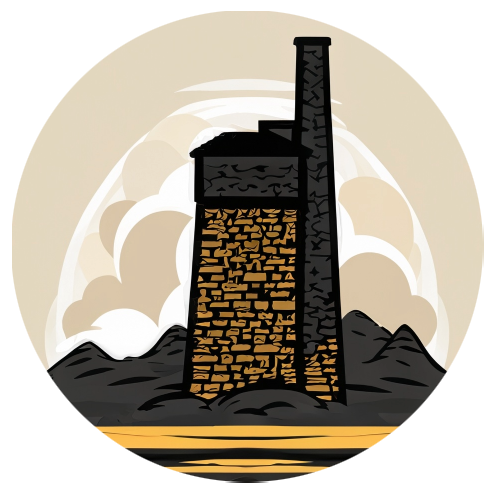John Harris (1820-1884)
A poetry competition in 1864 to mark the 300th anniversary of the birth of William Shakespeare was won not by someone from the elite of the poetry world or who benefitted from a university edication but by a Cornish miner who only received a rudimentary education.
John Harris was born in 1820 (at Bolenowe, near Camborne, Cornwall) into a modest home with few books. He was six or seven before starting school, leaving at the age of nine to start work, at first on a local farm, then in the nearby tin streams before, at the age of ten, starting work on surface at the famous Dolcoath Mine. When he was thirteen he went to work underground, an occupation he was to follow for the next twenty-four years. Release from the grinding toil of hard-rock mining came in 1857 when he was appointed a scripture reader at Falmouth.
His lack of a formal education was partly compensated by his love of reading. From an early age he read anything he could lay his hands on. His borrowed books from the Sunday School library and, recognising the aspiring poet’s thirst for knowledge, a mine agent, a leading industrialist and two clergymen, loaned him books. The work of such writers as Burns, Milton and Shakespeare entered the world of the young Harris from Bolenowe.
As well as reading he wrote prolifically. Ever since discovering the secret of rhyme and the mystery of writing couplets at the age of eight, he felt a compulsion to write. Whatever he was doing, verses were forming in his mind and he scribbled these down whenever and wherever and on whatever he could. When no paper was available he would scratch his poems on slate, using a sharp pointed nail. In his mining days his miner’s ‘hard’ hat was sometimes used for this. When ink was not available he used blackberry juice. Harris had to fit his writing between his busy working life and family life (he married Christiana Jane Rule at Camborne Parish Church in 1845 and they went on to have four children) and other commitments. Yet, against all odds, he published fifteen books of poetry and an autobiography. And won the Shakespeare Tercentenary Prize.
John Harris died in January 1884 at his home in Falmouth in his sixty-fourth year. He was buried in Treslothan Churchyard, not far from his birthplace.
“Whether dealing with scenes of childhood, the wild life of his Cornish countryside, or the grinding drama of life of the poor – Harris captures, with marvellous economy, the explosive charge contained in the sudden moment of revelation.”
Charles Causley, Poet
Times Literary Supplement, 1978
………………………………………………………….
“When scratching his verse on slates in the depths of a Cornish mine, Harris could never have dreamed that 150 years later on he would have an entry in the Oxford Companion to English Literature. A remarkable poet, he is the unique voice of 19th century Cornwall.”
D M Thomas, Poet and Novelist
……………………………………………………………
“Bolenowe lives; to Falmouth John did move
Where, mining over, life could well improve.
His village stayed his first, and lasting, love.”
Professor Charles Thomas, Author, Historian and Archaeologist


